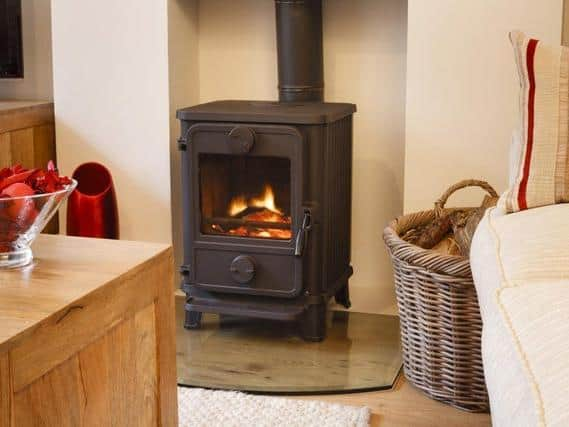Restrictions on sale of coal and wet wood to heat homes come into force as part of attempts to cut air pollution


Wood-burning stoves and open fires can still be used but must be fuelled by cleaner alternatives, according to a statement announcing the change from the Environment Department (Defra) and environment minister Rebecca Pow
A major source of the pollutant PM2.5 – which can enter the bloodstream, lodge in lungs and other organs and has been identified by the World Health Organisation as the most serious air pollutant for human health – is burning at home, particularly with traditional house coal or wet wood.
Advertisement
Hide AdAdvertisement
Hide AdThe restrictions, which came into force on May 1, form part of the Government’s Clean Air Strategy meaning bagged coal and wet wood of less than two cubic metres cannot be sold, and wet wood in larger volumes must be sold with advice on how to dry it prior to burning.
The changes also mean all manufactured solid fuels must now have a low sulphur content and only emit a small amount of smoke.
In addition, a new certification scheme will involve products being certified and labelled by suppliers to ensure they can be easily identified, and retail outlets will only be able to sell fuel with the correct label.
It comes two days after Defra released figures showing air pollution across the UK fell to its lowest levels on record in 2020 as a result of the pandemic.
Advertisement
Hide AdAdvertisement
Hide AdMs Pow said in a statement: “We know air pollution at a national level has reduced significantly since 2010 – with emissions of fine particulate matter down 11% and nitrogen oxide 32 per cent – but there is still a huge amount to do to tackle pollution from all sources, including transport, agriculture, industry and domestic burning.”
Asthma UK and the British Lung Foundation’s senior policy and projects manager Harriet Edwards said the restrictions could save the lives of millions with chronic lung conditions.
“It’s vital that we tackle all of these sources of air pollution and raise awareness about the dangers of air pollutants so people can make the best choices for their own health as well as the health of others around them,” Ms Edwards said.